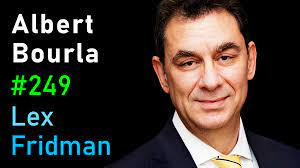Pfizer CEO Albert Bourla was asked this week about Pfizer’s record of wrongdoing.
On the Lex Fridman podcast, Bourla was asked about a 2009 prosecution in which Pfizer paid $2.3 billion and the Pfizer unit Pharmacia & Upjohn Company pled guilty to a felony for misbranding anti-inflammatory drug Bextra with the intent to defraud or mislead. Pfizer pulled the drug from the market in 2005.
“It was very bad what happened,” Bourla told Fridman. “I don’t think these things happened since then. We have had a stellar record from 2009 until now of complying with every single regulation and rule. We have internal processes to make sure that these are not happening by individuals that may have an interest, for example to get a promotion – they may and try to do things that are not the right things. And more importantly, we have a culture in this company that sets aside people who think differently.”
Let’s examine Bourla’s statement to Fridman:
“We have had a stellar record from 2009 until now of complying with every single regulation and rule.”
Let’s examine Pfizer’s “stellar record” since the 2009 guilty plea.
In 2012, Pfizer paid $60 million to settle foreign bribery charges. The Securities and Exchange Commission (SEC) alleged that employees and agents of Pfizer’s subsidiaries in Bulgaria, China, Croatia, Czech Republic, Italy, Kazakhstan, Russia, and Serbia made improper payments to foreign officials to obtain regulatory and formulary approvals, sales, and increased prescriptions for the company’s pharmaceutical products. They tried to conceal the bribery by improperly recording the transactions in accounting records as legitimate expenses for promotional activities, marketing, training, travel and entertainment, clinical trials, freight, conferences, and advertising.
In 2013, Texas Attorney General Greg Abbott secured $36 million for the State of Texas in settlements of two lawsuits against Pfizer and Endo Pharmaceuticals alleging fraud by the companies against the state of Texas.
In 2018, Pfizer paid $23.85 million to resolve claims that it used a foundation as a conduit to pay the copays of Medicare patients taking three Pfizer drugs, in violation of the False Claims Act.
In 2019, the Illinois Attorney General announced the recovery of $242 million in a settlement with numerous drug companies, including Pfizer, resolving allegations the companies inflated the wholesale prices used in setting the rates for Medicaid reimbursements.
In 2019, Pfizer paid more than $200,000 to settle an investigation brought by the New York Attorney General into the company’s business and advertising practices for its copayment coupon program. As part of the program, consumers were told that they would “pay no more than” $15 or $20, for example, for certain drugs – but ended up spending far more at the pharmacy cash register.
In 2019, Pfizer disclosed that it received document requests from the Department of Justice in June 2019 and from the SEC in September 2019 relating to the company’s operations in Russia. Pfizer said it was producing records pursuant to these requests.
In 2020, in a filing with the Securities and Exchange Commission (SEC), Pfizer disclosed that it had received an informal request from the Department of Justice’s Foreign Corrupt Practices Act (FCPA) unit seeking documents relating to the company’s operations in China. The SEC’s FCPA Unit made a similar request in August 2020. Pfizer said it was producing records pursuant to those requests.
That’s a snapshot of what Bourla calls Pfizer’s “stellar record from 2009 until now of complying with every single regulation and rule.”
And it came during a podcast where Bourla was shooting back at critics who he accuses of misrepresenting Pfizer’s Covid vaccine program.
“There are quite a few folks who realize they can make money by saying – the man is lying to you, it’s all corrupt, it’s all a scam,” Fridman said. “Big Pharma is lying to you, they are manipulating you – I’m surprised how much money can be made from that. And it’s sad.”
“I know people are listening to me right now – everything I say and I want to make sure that I’m being clear as to what I want to say, so there are no misunderstandings, but so that also I maintain the trust of the people,” Bourla said. “I don’t think that someone who only emphasizes positive things is someone is the one to be trusted. And I want me and Pfizer to be trusted.”
Well, Bourla might want to start by correcting his statement about Pfizer’s “stellar record from 2009 until now of complying with every single regulation and rule.”
